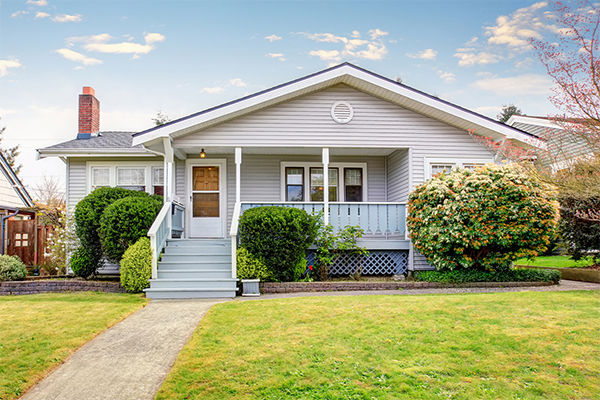What Is A Conventional Loan?

Key Takeaways:
- A conventional loan is any mortgage without government insurance. Usually, conventional financing is issued by banks, credit unions, or other private financial associations.
- There are two main categories of conventional loans: conforming, which comply with government-set mortgage standards, and nonconforming, which disregard these standards.
- Typically, conventional loan requirements are steeper than government-backed loans, calling for higher credit scores and interest rates.
What is a Conventional Loan?
When most people discuss home mortgages, they’re talking about conventional loans. Conventional loans are the “come one, come all” of mortgages. Highly available and customizable, a conventional mortgage loan offers private financing for most buyers to land their dream home.
From credit score minimums to loan limits, let’s explore the details behind the common conventional loan guidelines.
Conventional Loans—Who, What, and How

A conventional loan is any mortgage not insured by a US government agency. With such a broad definition, conventional loans represent 71.8% of recent US home mortgages.
To understand why these loans are so popular, let’s dive into the who, what, and how of financial and eligibility terms.
Who: Loan Providers
When people say “conventional loan,” they usually mean a mortgage with a private lender, such as a bank, credit union, or mortgage association. However, two government-related enterprises also provide these loans—Fannie Mae and Freddie Mac.
Since government-insured loans usually have a lower interest rate and less complex eligibility standards, private lenders sometimes match conventional loan terms to federally-backed options. Keep an eye out for these perks when shopping for a mortgage lender.
What: Loan Payment Model
Like all home mortgages, a conventional home loan is paid off in two parts—an initial down payment and interest-rate based monthly payments.
Down payments for conventional loans vary wildly, from as low as 3% to over 20%. Your down payment percentage will depend on a few factors, including:
- Conventional loan type
- Credit report score
- Personal finances
- Property value
Keep in mind that for down payments under 20%, lenders usually require purchasing private mortgage insurance, costing about 0.5% to 1.5% of your loan annually.
For your future budget, expect your monthly payment plan to last about 15 to 30 years on conventional loans. Typically, the interest rate on these payments sits around 3%—however, a higher credit score can lower that rate.
How: Conventional Loan Guidelines

You can’t borrow money without a bit of trust—and for lenders, that trust comes from buyers proving a few financial standards.
Although more exclusive than government-insured loans, conventional loans accommodate the finances of most home buyers. To approve a conventional loan, a private mortgage lender typically asks for:
- Credit score minimum of 620
- Debt-to-income ratio less than 43%
- Assets to cover a down payment
- Proof of income
- Tax returns
And as always—the better your financial credentials, the better your mortgage terms. Credit scores over 740 can significantly reduce your interest rate or monthly mortgage payment.
Types of Conventional Loans
The conventional loan family includes all mortgages without government insurance, so there’s room for specialization. To start off, let’s break down the two main conventional loan categories—conforming and nonconforming.
Conforming Loans
Remember Fannie Mae and Freddie Mac, the two government-backed mortgage enterprises? The conforming conventional loan type follows the mortgage criteria of these organizations.
As of 2021, guidelines for conforming conventional loans include:
- A loan limit of $548,250 (in most US locations)
- Minimum credit score of 620
- Debt-to-income ratio below 36%
- Down payment minimum of 3%
Conforming loans typically offer the lowest interest rates, saving money for homebuyers in the long run. However, lenders also prefer conventional mortgages, since they have more value in the secondary mortgage market.
Nonconforming Loans
Nonconforming conventional loans are truly private—they do not follow any government-set standards. Private lenders are then free to set whatever terms, eligibility, or payment requirements they please.
Let’s review the most popular nonconforming loan categories:
- Jumbo Loans – A jumbo loan is any mortgage that exceeds the conforming loan limit set by Fannie Mae and Freddie Mac. Luxury homebuyers are the typical borrowers here.
- Subprime or Non-Qualified Loans – For those with a less-than-desirable credit score or debt record, a subprime loan is often the only mortgage option. In exchange for financing riskier borrowers, lenders usually place higher interest rates and fees on these loans. And while the term “subprime” earned a nasty reputation from the housing crisis, federal law now requires all borrowers to prove their paying ability with mortgages.
- Specialized Property Loans – For atypical properties—micro-homes, farmland, green homes—value can be difficult to prove to lenders. Specialized nonconventional loans accommodate for unique situations, helping buyers fund less common property.
Conventional Loans vs. Government-Insured Loans
As stated, conventional loans don’t have government insurance. However, you might be curious about what a government-backed mortgage entails.
To compare the two, let’s dive into the world of government-insured loans.
Typically, government-insured loans cater to lower-income buyers, lowering both credit score minimums and interest rates. And despite the name, only private lenders offer these loans—they are insured, not sold, by the government.
The top federal agencies that insure home mortgages:
- Federal Housing Administration (FHA) – The most lenient of mortgages, an FHA loan allows for credit scores as low as 500. They aim to assist lower-income homebuyers, offering affordable interest rates and down payments. Keep in mind that the FHA does require all borrowers to pay a monthly mortgage insurance premium.
- US Department of Agriculture (USDA) – Looking at rural property? The USDA can help finance your venture. Their mortgages offer lenient financial requirements with no down payment to low-income individuals.
- US Department of Veterans Affairs (VA) – For military households, the VA offers exclusive mortgage deals with perks like 0% down payment.
Is a Conventional Loan Worth It?
In general, conventional loans best fit buyers with financial security. With a high credit score or hefty down payment, a conventional loan can waive costs from mortgage insurance or fees.
That said, depending on your personal finances, every home loan has its pros and cons. It’s always best to compare all home loan options. That way, you’ll find the deal that ensures your homeowner success.
Sources:
Ballinger, Barbara. Conventional loan rates and requirements for 2021. https://themortgagereports.com/21489/how-to-buy-a-home-conventional-loan-mortgage-rates-guidelines
Bucyznski, Beth; Wood, Kate. Conventional Loan Requirements for 2021. https://www.nerdwallet.com/article/mortgages/conventional-loan-requirements-guidelines
Federal Housing Administration. FHA Loan Requirements. https://www.fha.com/fha_loan_requirements
US Department of Veterans Affairs. Purchase Loan. https://www.va.gov/housing-assistance/home-loans/loan-types/purchase-loan/
Folger, Jean. What Can I Expect My Private Mortgage Insurance (PMI) Rate to Be? https://www.investopedia.com/ask/answers/081214/average-what-can-i-expect-my-private-mortgage-insurance-pmi-rate-be.asp
Investopedia. Conventional Mortgage or Loan. https://www.investopedia.com/terms/c/conventionalmortgage.asp
Luthi, Ben. What is a Conventional Loan? https://www.experian.com/blogs/ask-experian/what-is-a-conventional-loan/
US Census Bureau. Quarterly Sales and Price by Financing, 2020 Q4. https://www.census.gov/construction/nrs/pdf/quarterly_sales.pdf
US Department of Veterans Affairs. Purchase Loan. https://www.va.gov/housing-assistance/home-loans/loan-types/purchase-loan/






